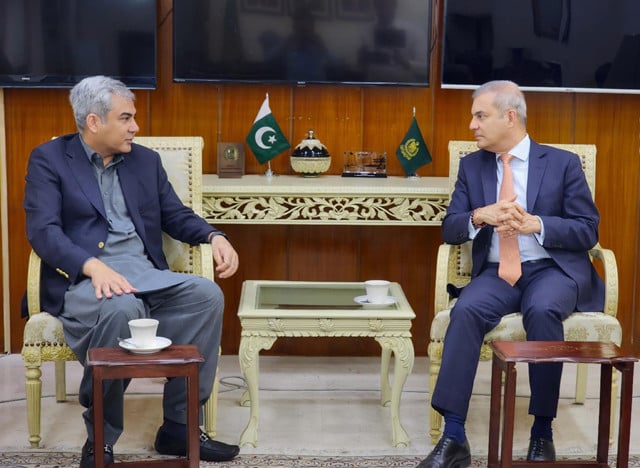“Interior Minister Mohsin Naqvi Meets UN Delegation Headed by Special Representative for Afghanistan, Indrika Ratwatte”
Pakistan Appeals to UN to Address Cross-Border TTP Attacks from Afghanistan
ISLAMABAD – On Wednesday, Pakistan made a formal appeal to the United Nations, highlighting the issue of the banned Tehreek-e-Taliban Pakistan (TTP) exploiting Afghan territory to launch cross-border terrorist attacks. This plea was presented by Federal Interior Minister Mohsin Naqvi during a crucial meeting with a high-profile UN delegation led by UN Special Representative for Afghanistan, Indrika Ratwatte.
The delegation, which visited the Ministry of Interior, included notable figures such as UN Resident Coordinator Mohamed Yahya, Fady El Meouchy, Special Assistant to the Deputy Special Representative of the Secretary-General (DSRSG), and Malick Ceesay, who heads the UN mission in Afghanistan. The discussions underscored the escalating concerns over the cross-border activities of the TTP and the broader implications for regional stability.
Since the Taliban’s resurgence in Afghanistan, Pakistan has witnessed a significant uptick in terrorist incidents. Islamabad has repeatedly urged for decisive action against terrorist sanctuaries within Afghanistan, but these calls have often yielded limited results. The strained relationship between Pakistan and Afghanistan has been particularly pronounced over the TTP issue, further complicating diplomatic relations.
During the meeting, Minister Naqvi addressed the delegation about the critical issue of the TTP using Afghan soil for launching attacks into Pakistan. He emphasized the urgent need for the UN to play a proactive role in addressing this security threat and ensuring that such cross-border terrorism is effectively curtailed. The discussions were marked by a strong emphasis on international cooperation and the need for comprehensive measures to tackle this growing menace.
Minister Naqvi welcomed the UN delegation warmly at the Ministry of Interior and used the occasion to outline Pakistan’s significant contributions and sacrifices in the fight against terrorism. He pointed out that Pakistan’s security forces, police, and citizens have made unparalleled sacrifices in their ongoing battle against terrorism, underscoring the severity and scale of the threat faced by the country.

In his address, the minister specifically highlighted the involvement of the TTP in recent terrorist attacks within Pakistan. He reiterated that the banned group was utilizing Afghan territory to plan and execute these attacks, and stressed that such activities must be halted. Naqvi conveyed Pakistan’s commitment to peace and stability in Afghanistan, noting the country’s long history of hosting Afghan refugees and its support for their well-being.
Regarding the refugee situation, Naqvi mentioned that Pakistan has initiated a phased repatriation process for illegal foreigners, ensuring that only those with valid documentation remain in the country. He assured that no action was being taken against individuals holding legal documents and reiterated that no one could stay in Pakistan without a visa or other legal documentation. He also announced that the second phase of the repatriation of Afghan refugees is set to commence soon, emphasizing the need for a coordinated international effort in the rehabilitation and resettlement of Afghan refugees.
UN Special Representative Indrika Ratwatte expressed appreciation for Pakistan’s role in the Afghan refugee crisis and praised the ongoing dialogue in Doha. He acknowledged the challenges faced by Pakistan and reaffirmed the UN’s commitment to working closely with the Afghan government to ensure the permanent rehabilitation of Afghan refugees. Ratwatte’s remarks underscored the importance of continued international collaboration to address the complex issues surrounding the Afghan refugee situation and cross-border terrorism.
The meeting highlighted the critical need for enhanced international engagement and support in tackling the cross-border activities of terrorist groups and managing the refugee crisis. The discussions also underscored the importance of collaborative efforts between Pakistan, Afghanistan, and the international community to address these pressing challenges effectively.

